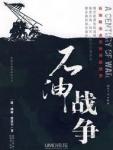When I was sitting at the table, spreading out my pen and ink, and preparing to write the preface for the Chinese version of this book, I was both proud and bewildered.Chinese readers are intelligent and sensitive. It is indeed not an easy task to present a chaotic and noisy world concisely and clearly in such a short preface.
The United States is the only superpower in the world today.It is the historical mission of China today to play a decisive role in world affairs in a way different from that of the United States.Under such historical conditions, to understand the United States, see how she avoids repeating the mistakes of her predecessors, especially the same mistakes made by the United Kingdom, and how to form her own "soft power" with the help of international organizations such as the International Monetary Fund and the World Bank. ", how to build the "American Century" called by Henry Luce, the founder of "Time" magazine, is very necessary and urgent.
The "American Century" is hidden under the banner of anti-colonialism, free trade and entrepreneurial autonomy, and hidden in empty but seductive slogans of "pro" democracy.In the first few decades after 1945, American power did indeed play an extraordinary role in the world.However, it must be remembered that American power has two essential support bases-the military monopoly position that dominates the world, those who follow me will prosper, and those who oppose me will perish; The Fed is the central bank of the world.
In August 1971, President Nixon decided to unilaterally abandon his treaty obligations and closed the "gold window" of the Federal Reserve to prevent a run on the US gold reserves.The ability of the United States to issue currency is therefore infinitely magnified. You only need to "unconditionally be loyal to and trust the United States."Such an arrangement has allowed the US authorities to have unlimited financing capacity to support wars, kill innocent people indiscriminately, and solve the soaring trade and fiscal deficits in the past three decades.For a long time, the United States has maintained huge trade deficits with Germany and Japan. In recent years, this trend has extended to emerging countries such as China with rapid economic development.In the process of maintaining the status of the US dollar as the world's hard currency, no commodity can be compared with oil in the field of world trade.
As long as the world has "confidence" in the dollar, the system will work.To those in Washington and Wall Street, the system was like a magic money-printing machine.But it is not.
Today's "American century" is on the wane.The key question is: why is this happening?What's next?The purpose of writing this book is to answer this question for readers.
Careful readers will soon discover that this book is not an American interpretation of oil politics.This book traces the history of the policies of great power, empire, and world power for more than a century.
Today, in the libraries of Western universities, you can hardly find a history textbook that can clearly explain the dynamics behind the British and American foreign policy, especially the establishment of the "special relationship between Britain and the United States" after 1941. Books that explain clearly the world under the "Pan American" alliance founded by Churchill.In the 1930s, this alliance was called the "Alliance of the English-speaking Countries" by the British and American authorities, and its purpose was to rule the entire earth.But the alliance is falling apart today, largely because of the disastrous foreign and economic policy mistakes that one of its leaders, the United States, has made for more than three decades.
"If you control the oil..."
In the 1970s, the price of oil in the world market soared by 400%, and the food shortage was serious, which brought a huge impact to the world.U.S. Secretary of State Henry Kissinger—the most powerful man in Washington and the Western world at the time—had said: “If you control oil, you control all countries; if you control food, you control Everyone; if you control money, you control the world.”
This little-known assertion sums up America's philosophy of great power, at least that of the elite few who shape American foreign and domestic policy from behind the scenes.
Since the end of the American Civil War in the 1860s, the American political circle has always believed in the creed of expansionism and named it "Manifest Destiny", which means that it is the will of God.Based on this, the borders of the United States were extended from the Atlantic Ocean to the Pacific Ocean, exterminating and restricting the native Indians in the process.After 1898, its sphere of influence expanded to the Philippines, Cuba and Hawaii.The United States had long ago purchased Alaska from the Russians as part of its expansion.

oil war
威廉·恩道尔
political economy
Category- 1970-01-01Published
-
215142
Completed
© www.3gbook.com
Press "Left Key ←" to return to the previous chapter; Press "Right Key →" to enter the next chapter; Press "Space Bar" to scroll down.
